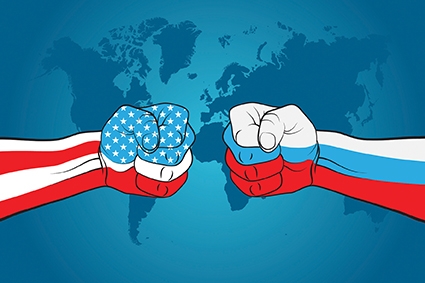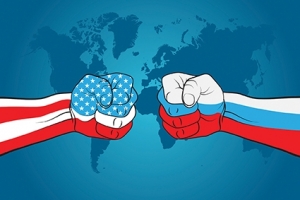US & Russia: Exploring Potential Cooperation
Op-ed
When last week Russia introduced countersanctions against the US by ordering 755 American diplomats out of the country, it was propagated inside Russia as a veritable sign of Russia’s anger. In reality though, the move should rather be considered as a belated countermeasure against those actions which were taken by the former US president Barrack Obama in late 2016.
The reality is that Moscow cannot afford to impose serious countersanctions against Washington as they would harm the problem-stricken Russian economy more than that of the US. For instance, power engines manufactured in Russia for NASA in the US bring a lot of money for Russia and ceasing their export will cost the Russian economy as much as $1 bln within a few years.
Some analysts could see that as a sign of Russia trying to leave even a small chance for the improvement of relations between the countries. But it is more plausible to think that Moscow simply cannot respond proportionately to the new US-imposed sanctions.
And Moscow should be worried about the existing international situation. The very fact that Washington imposed sanctions on Russia together with North Korea and Iran makes it clear how the White House currently views Russian actions in terms of the instability they create for their neighbors in Eurasia. The relations between Moscow and Washington may even worsen. The US Secretary of State, Rex Tillerson, said this Tuesday that "as I indicated on my first trip to Moscow, following meetings at the Kremlin with President Putin, the relationship was at a historic low since the end of the Cold War, and it could get worse".
Moscow sees that the pressure from the US has significantly increased over the past several months. The US military and security build-up in Eastern Europe, along with open statements from American high officials on how supportive Washington will be in case of a conflict with Russia, are clear signs of the US resolve. US Vice President Mike Pence’s recent visit to Estonia and Georgia was a good reflection of this policy. Moreover, the largest ever-in-Georgia military exercises are now being held on Georgian soil with the participation of the US and other allies. A further sign of the complicated situation the Kremlin is finding itself in, is the announcement that Putin will be visiting Abkhazia on August 8 – the anniversary of the short Russo-Georgian war of 2008. The Russians even announced that the upcoming visit specifically comes against Pence’s visit in Tbilisi.
Thus, the relations are indeed complicated, with no sign of abating as the US has made it repeatedly clear that any improvement is contingent on Russia making concessions in her current stance on Ukraine, Georgia and elsewhere. Putin‘s grand strategy of tying up the Syrian crisis with the Ukrainian one in order to gain leverage in negotiations with the West did not work. Further, hopes that under Trump the relations would improve were also dashed and we are now seeing the beginning of a protracted confrontation.
Hopes of cooperation, however limited
However, despite this, the lowest point in bilateral relations since the end of the Cold War, the two powers may still find some common ground for cooperation. Syria is a primary example, when the ceasefire in the south-western part of the country was reached in early July during the meeting of the two presidents in Hamburg. Indeed, both countries share a vision of defeating the Islamic State.
Afghanistan could be another theater of cooperation as Russia fears the spillover of militancy across the Afghan border into central Asia. Moscow, at least in theory, should not be entirely against the US in Afghanistan since, despite Moscow’s military presence in Tajikistan and Kyrgyzstan, its military forces might not be effective against trans-border attacks from the Taliban and the Islamic State fighters.
The third geographic area of likely cooperation is the Korean peninsula where both countries oppose North Korea’s nuclear program and fear that this could be a final blow to the non-proliferation policy which is already under certain pressure from both Moscow and Washington. However, despite the shared vision, Tillerson recently criticized Russia along with China for not doing enough to stop Pyongyang’s nuclear program.
These are the theaters across the globe where Russia and the US could cooperate, but the question is how this potential cooperation could spill over onto the former Soviet space. As we have seen there is very little understanding between the two powers on Ukraine, Georgia and wider eastern European security. This leaves dim prospects for any change in the coming months and possibly even years.
Emil Avdaliani












